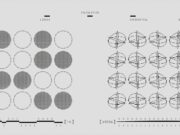In today’s world, making informed decisions is essential. One key component in this process is objective evidence.It provides a solid foundation for conclusions. But what exactly is objective evidence? How does it differ from subjective evidence, and why is it so important? In this article, we’ll explore the concept of objective evidence, its examples, and its importance in various fields such as auditing and decision-making.
What is Objective Evidence?
Definition of Objective Evidence in Simple Terms
Objective evidence refers to facts, data, or documentation that is verifiable and independent of personal feelings or opinions. It is factual proof that can be measured and observed. Unlike subjective evidence, objective evidence is free from bias, making it a reliable source in any analysis.
For example, a photograph of an event, a scientific experiment, or a written report can serve as objective evidence. These items are not influenced by an individual’s personal views but rather represent reality.
Characteristics of Objective Evidence
The key features of objective evidence include:
- Measurability: It can be quantified or observed without ambiguity.
- Verifiability: Anyone can check or confirm the evidence.
- Independence: It is unaffected by personal emotions or opinions.
- Reliability: It consistently produces the same results under similar conditions.
These characteristics ensure that objective evidence holds weight in any field, from law to scientific research and auditing.
Examples of Objective Evidence in Real Life
Examples of Objective Evidence in Auditing
In auditing, objective evidence plays a crucial role. It serves as the foundation for verifying a company’s financial statements. Examples include:
- Bank statements: These documents provide factual data on the financial transactions of a business.
- Invoices and receipts: They prove the validity of expenses and income.
- Inventory records: These provide details about stock levels and purchases.
Auditors rely on these tangible forms of evidence to ensure that a company’s financial reports are accurate and trustworthy.
Objective Evidence in Decision-Making and Compliance
Objective evidence is vital in making fair and balanced decisions. In legal situations, for instance, it could be used to support claims or refute arguments. In regulatory compliance, businesses use objective evidence to ensure they meet legal requirements.
Here are a few examples:
- Scientific studies: These studies provide objective data to support or challenge hypotheses.
- Performance metrics: Businesses use measurable data to assess employee productivity or financial performance.
- Legal documents: Contracts and agreements are examples of objective evidence in law, as they are binding and verified by all parties involved.
Objective evidence can also be used to settle disputes or verify the compliance of business practices.
Objective Evidence vs Subjective Evidence
Key Differences Between Objective and Subjective Evidence
One of the most significant distinctions is the source of the evidence. While objective evidence is factual and independent, subjective evidence is based on personal feelings, interpretations, or opinions.
| Aspect | Objective Evidence | Subjective Evidence |
| Basis | Verifiable facts and data | Personal opinions or experiences |
| Examples | Bank statements, scientific data | Personal witness testimony, emotional opinions |
| Reliability | Highly reliable due to its factual nature | Can vary significantly based on the person’s views |
When is Objective Evidence More Reliable?
Objective evidence is more reliable in situations that require factual accuracy, such as in audits, legal cases, or scientific research. Unlike subjective evidence, which can be influenced by individual biases, objective evidence provides a clear, verifiable account of a situation.
For example, in an audit, objective evidence like invoices and bank statements can confirm or disprove financial claims, making it more trustworthy than subjective impressions.
The Importance of Objective Evidence
Why Objective Evidence is Crucial for Decision-Making
Objective evidence is essential in decision-making processes, especially in fields such as business, law, and healthcare. It provides the solid facts needed to make informed choices, which ultimately leads to better outcomes.
For instance, a business looking to expand might rely on objective evidence such as market data, customer surveys, and financial projections to ensure the decision is backed by hard facts. This minimizes the risks of basing decisions on opinions or assumptions.
Role of Objective Evidence in Auditing and Compliance
In the context of auditing, objective evidence ensures the accuracy of financial statements. It helps auditors determine whether the financial records are truthful and comply with regulations. Without objective evidence, the auditing process would be vulnerable to errors or manipulation.
Moreover, objective evidence in compliance checks helps businesses prove they are following industry regulations. Regulatory bodies require verifiable proof that companies meet specific standards, and objective evidence serves this purpose.
FAQs About Objective Evidence
What Makes Evidence Objective?
Objective evidence is made up of verifiable facts and data. It is not influenced by personal opinions or biases. Examples include documents, photos, measurements, and other data that can be observed or tested.
Can Subjective Evidence Be Used as Objective Evidence?
No, subjective evidence cannot be considered objective evidence. While subjective evidence is based on personal opinions or experiences, objective evidence is based on verifiable facts that are not influenced by personal perspectives.
How Can Objective Evidence Improve Accuracy in Audits?
In audits, objective evidence such as receipts, bank statements, and inventory records provides a clear, unbiased view of a company’s financial situation. It ensures that the financial reports are accurate and comply with legal standards, making the audit process more trustworthy.
Objective evidence is a cornerstone in making informed, unbiased decisions. Whether in auditing, legal matters, or day-to-day business practices, it helps establish the truth and ensures transparency. By understanding the significance of objective evidence, you can make decisions that are well-supported and reliable.























